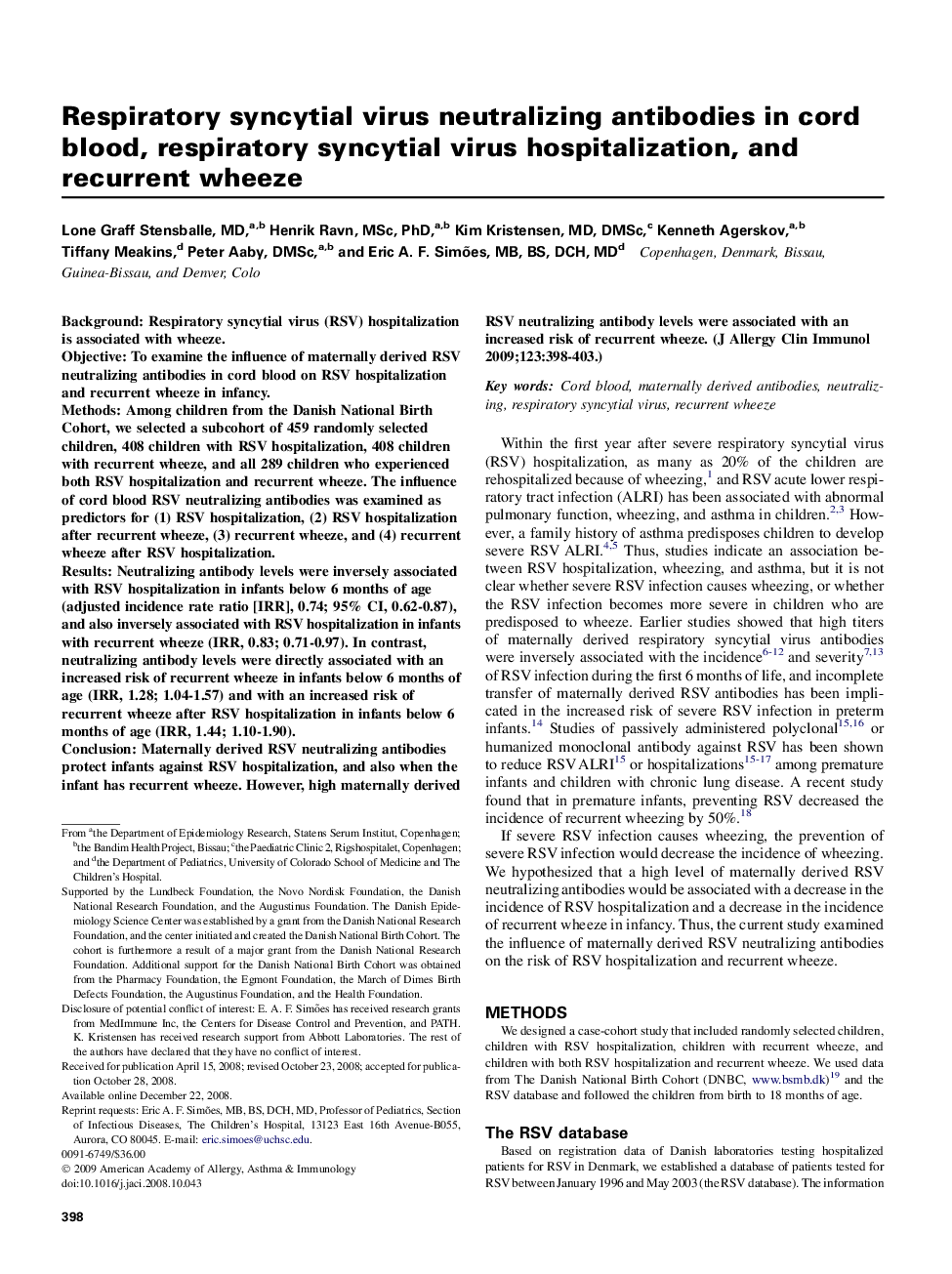| Article ID | Journal | Published Year | Pages | File Type |
|---|---|---|---|---|
| 3200878 | Journal of Allergy and Clinical Immunology | 2009 | 6 Pages |
BackgroundRespiratory syncytial virus (RSV) hospitalization is associated with wheeze.ObjectiveTo examine the influence of maternally derived RSV neutralizing antibodies in cord blood on RSV hospitalization and recurrent wheeze in infancy.MethodsAmong children from the Danish National Birth Cohort, we selected a subcohort of 459 randomly selected children, 408 children with RSV hospitalization, 408 children with recurrent wheeze, and all 289 children who experienced both RSV hospitalization and recurrent wheeze. The influence of cord blood RSV neutralizing antibodies was examined as predictors for (1) RSV hospitalization, (2) RSV hospitalization after recurrent wheeze, (3) recurrent wheeze, and (4) recurrent wheeze after RSV hospitalization.ResultsNeutralizing antibody levels were inversely associated with RSV hospitalization in infants below 6 months of age (adjusted incidence rate ratio [IRR], 0.74; 95% CI, 0.62-0.87), and also inversely associated with RSV hospitalization in infants with recurrent wheeze (IRR, 0.83; 0.71-0.97). In contrast, neutralizing antibody levels were directly associated with an increased risk of recurrent wheeze in infants below 6 months of age (IRR, 1.28; 1.04-1.57) and with an increased risk of recurrent wheeze after RSV hospitalization in infants below 6 months of age (IRR, 1.44; 1.10-1.90).ConclusionMaternally derived RSV neutralizing antibodies protect infants against RSV hospitalization, and also when the infant has recurrent wheeze. However, high maternally derived RSV neutralizing antibody levels were associated with an increased risk of recurrent wheeze.
